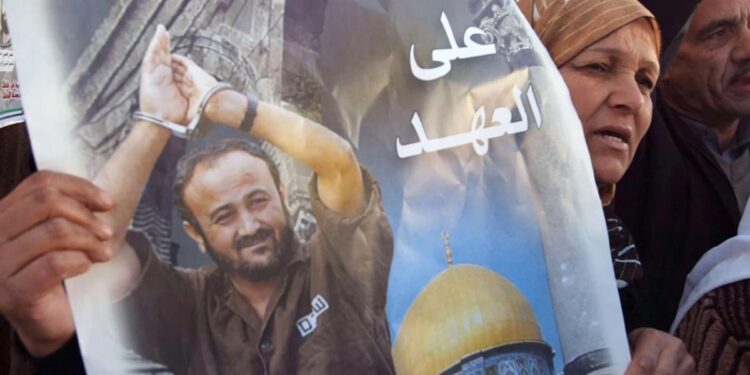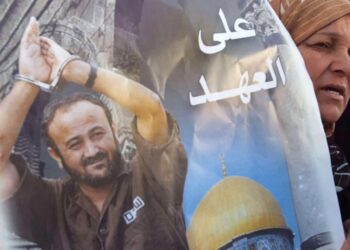While the agreement between Hamas and Israel provides for the exchange of nearly 2,000 Palestinian prisoners for Israeli hostages, the name of Marwan Barghouthi, an emblematic figure of the Palestinian cause, was explicitly excluded from the negotiations by the Israeli government.
Barghouthi, absent from a major exchange
Questioned during a press briefing, Israeli government spokesperson Shosh Bedrosian affirmed that Marwan Barghouthi would not be affected by the exchange agreement. “At this point, he will not be part of this exchange,” she said, putting an end to rumors that had been circulating since the ceasefire between Israel and Hamas was announced.
Under the terms of the agreement, nearly 2,000 Palestinian detainees must be released, including 250 sentenced to life imprisonment and 1,700 arrested since the start of the conflict. In return, Hamas will hand over 20 Israeli hostages still alive and the bodies of several other prisoners held in Gaza.
A prisoner who became a symbol
Arrested in 2002 by the Israeli army, Marwan Barghouthi, now aged 65, is serving five life sentences for his alleged role in the second Intifada. An influential member of Fatah, he is considered by many Palestinians as a symbol of resistance and a potential political heir to Yasser Arafat.
For his supporters, Barghouthi embodies the struggle for the freedom and dignity of the Palestinian people. In the camps and occupied territories, his portrait appears alongside the most famous martyrs and prisoners. In their eyes, his eventual release would have marked a historic turning point in Palestinian national reconciliation.
Israelis divided
In Israel, Marwan Barghouthi remains a highly controversial figure. Many consider him responsible for deadly operations during the Intifada, while others see him as a credible interlocutor for a future peace agreement.
Several former Israeli officials, including intelligence officers, have already advocated for his release, believing that he could be a pragmatic and legitimate interlocutor for a lasting political process.
But Benjamin Netanyahu’s government, dominated by the nationalist right and religious parties, categorically rejects this hypothesis. For him, freeing Barghouthi would strengthen Palestinian nationalism, at a time when Israel seeks to consolidate its military and political advantage in Gaza.
An absentee who weighs in the negotiations
If the Gaza agreement represents hope for humanitarian respite, Barghouthi’s absence reminds us of the limits of the current approach: a tactical compromise, but without real political progress.
In the streets of Ramallah, his name is already chanted in demonstrations calling for his release. Many Palestinians see his continued detention as proof that Israel is not seeking a real political settlement, but temporary appeasement.




